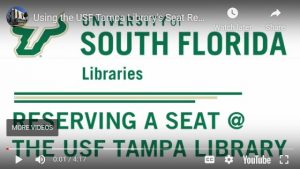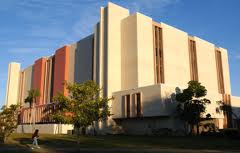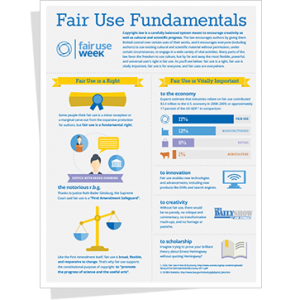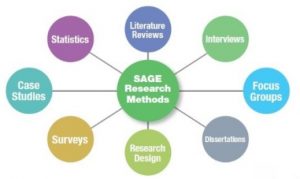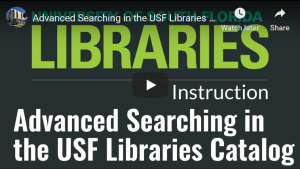In a recent, short video tutorial, we compare large, comprehensive search tools like FindIt with subject specific, specialized databases, outlining the advantages that specialized tools have over large, multidisciplinary ones. Even though you get more hits using larger databases, bigger isn’t always …Continue Reading
Category: Tips and Tricks
Technology Support with LinkedIn Learning
USF students and instructors who create a LinkedIn account have free access to all of the LinkedIn Learning catalog (previously Lynda.com). This catalog consists of instructional content for software programs like Excel and Photoshop, concepts like copyright, and skills like career management …Continue Reading
Course Material Scanning and Reserves
Electronic reserves are made available to students in their Canvas course. If you need to make a request, please see How to make an E-Reserves Request. At the moment the library is only processing electronic reserves. Because of the present crisis, it is unknown whether …Continue Reading
Returning or Renewing USF Library Materials
Returning Materials If you have books, DVDs, CDs, or similar materials that need to be returned to the USF Libraries, you may use the book returns to do so. The return date will be back-dated when the USF Libraries reopen for business. …Continue Reading
Fair Use/Fair Dealing Week
Commissioned by the Association of Research Libraries, Fair Use/Fair Dealing Week from February 24-28 is “designed to highlight and promote fair use/fair dealing, to explain these concepts and to celebrate successful stories. This downloadable Fair Use Fundamentals infographic explains what fair use …Continue Reading
Sage Research Methods Database
The SAGE Research Methods database includes a comprehensive collection of resources related to research methods with more than 1,000 books (such as Quantitative Applications in the Social Sciences series) reference works, journal articles and instructional videos to guide users about various research …Continue Reading
Featured E-book: The Creative Qualitative Researcher
The Creative Qualitative Researcher: Writing That Makes Readers Want to Read by Ronald J. Pelias (Routledge), discusses the concept of “creative scholarship, which asks researchers to use literary skills to evoke the emotional/intellectual complexity of the subject matter. Four qualitative methods are …Continue Reading
Why Choose the Library Catalog over the Findit Search Tool?
Sometimes less is more when it comes to search tools. Why use the library catalog when you can access book records from the all-inclusive Findit Tool? One reason you might want to use the catalog has to do with the fact that you are more clicks away from getting useful information should you want to find a physical item such as a print book in the library. The catalog has more functionality than the Findit Tool if you want more local information like where to locate your item using floor maps of your library or if you want to construct an advanced search to look for either a specific location of materials in the library (like children’s books) or a specific format of material, like videos. This post features a video tutorial on how to conduct an advanced search in the library catalog to filter for specific material you may be looking for in the library.
Featured E-book Navigating Challenges in Qualitative Educational Research
Navigating Challenges in Qualitative Educational Research, from Routledge by Todd Ruecker and Vanessa Svihla, discusses how education researchers navigate the qualitative research process, along with a myriad of decision points. This work offers students and other researchers insights on how to deal with research challenges.

